The Night Before the Wedding – The Bride Fell Ill with Coronavirus: COVID Hotel Managers Share Insights
How do staff handle a guest absconding from the hotel, what are the protocols for family visits, and what happened when a bride was sent to a COVID hotel just a day before her wedding? An engaging discussion with Shmuel Jungreis, CEO of 'Ruach Galilit', and Shalom Ashkenazi, CEO of 'Lavi Hotel', about COVID-19 and hospitality challenges. Everything is on the table.
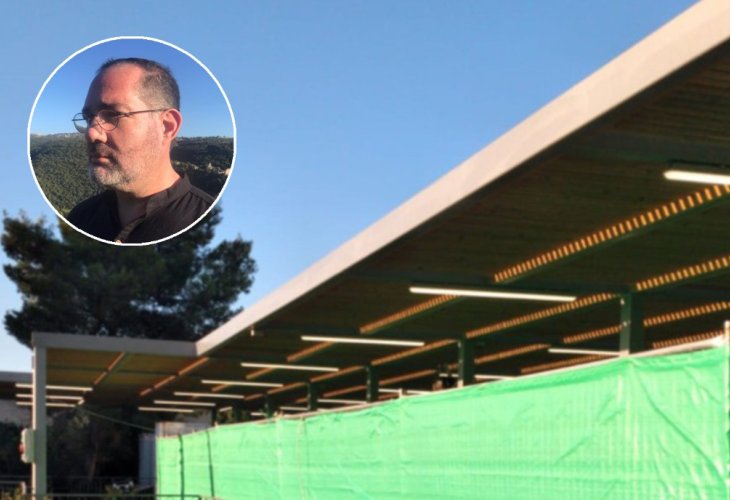 COVID Hotel. In the circle: Shmuel Jungreis
COVID Hotel. In the circle: Shmuel JungreisThe term "COVID hotel" speaks volumes. We all understand that it's far from a dream vacation. But what really happens in these hotels? What about food and laundry services? When do guests get discharged, and why were some hotels reluctant to join the national effort and adapt to the health ministry’s and Home Front Command’s requirements? This time, we chose to shed light on the perspective of the COVID hotel managers. We spoke with Shmuel Jungreis, CEO of Ruach Galilit, and Shalom Ashkenazi, CEO of Lavi Hotel, and asked them everything. The conversation was fascinating and lengthy, providing us with significant insights into the hotel industry, public demands, and particularly the Haredi community.
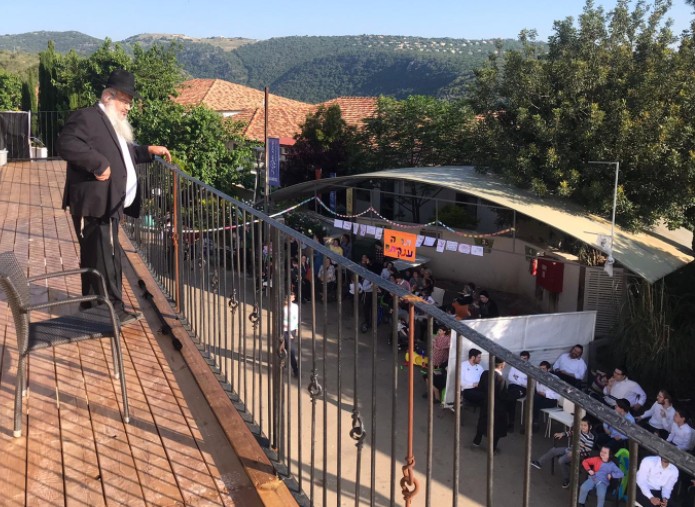
Before you decided to convert 'Ruach Galilit' into a COVID hotel for the Haredi community, what was behind this decision, which some might call a crucial one?
"About a year ago, we made a strategic decision to cater to the Haredi population, understanding that they too deserve to enjoy services that meet their requirements. The needs of the Haredi community didn’t draw even a hint of criticism from us. On the contrary, we respected their desire to maintain their principles. We connected with a variety of organizations that arrange vacations and offered them our services. We adapted the hotel to meet strict kashrut standards and other specific requirements. Everything was ready to welcome guests. Then... the COVID pandemic disrupted everything, leaving the hotel closed until Passover."
As of April, 'Ruach Galilit' joined the national effort by converting its hospitality and holiday center into a COVID hotel. "As soon as we were contacted by the Ministry of Defense to explore hotel options for the Haredi sector, we agreed. Not only did we agree, but we emphasized that we wanted to tailor our hotel specifically for the Haredi community. To this end, we dedicated the entire hotel, including a unique water park operated with separate hours for men and women. In addition, the hotel features a functioning synagogue and a mikveh for men, providing all the necessary spiritual and physical facilities."
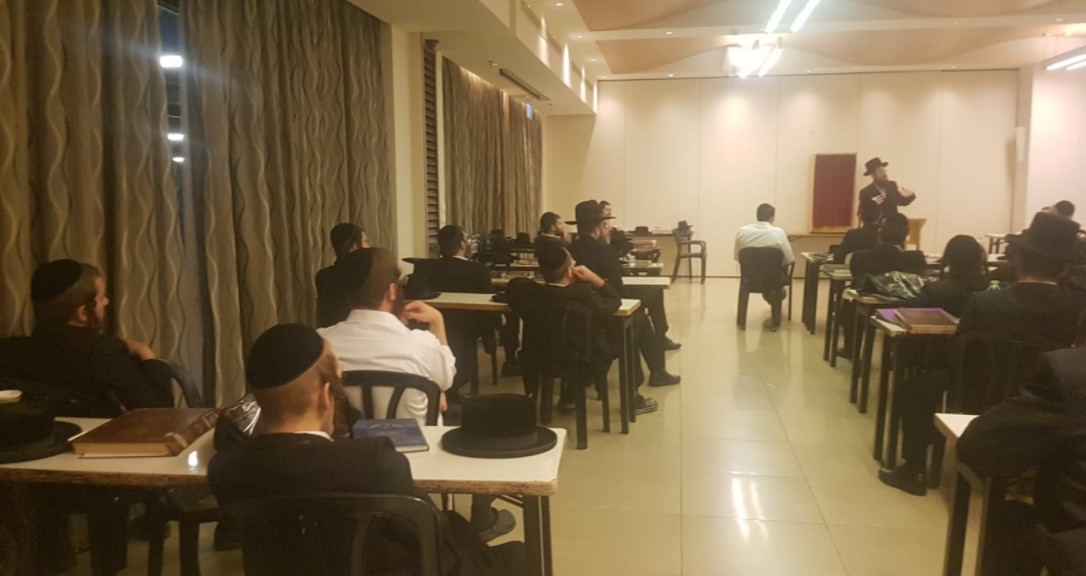
Ashkenazi: "On April 1st, we were approached by the Ministry of Defense, requesting three hotels familiar to the religious and Haredi public to open—or rather, close—their doors exclusively for COVID-positive Haredi guests." From Ashkenazi's perspective, there wasn’t even a moment of hesitation. "When they approached us, we immediately agreed. Also, in terms of livelihood, I want to earn a living and continue to employ dozens of workers rather than furlough or lay them off. Moreover, understanding the cultural dynamics of the Haredi community from previous years, we know how to adapt the hotel to fit their way of life."
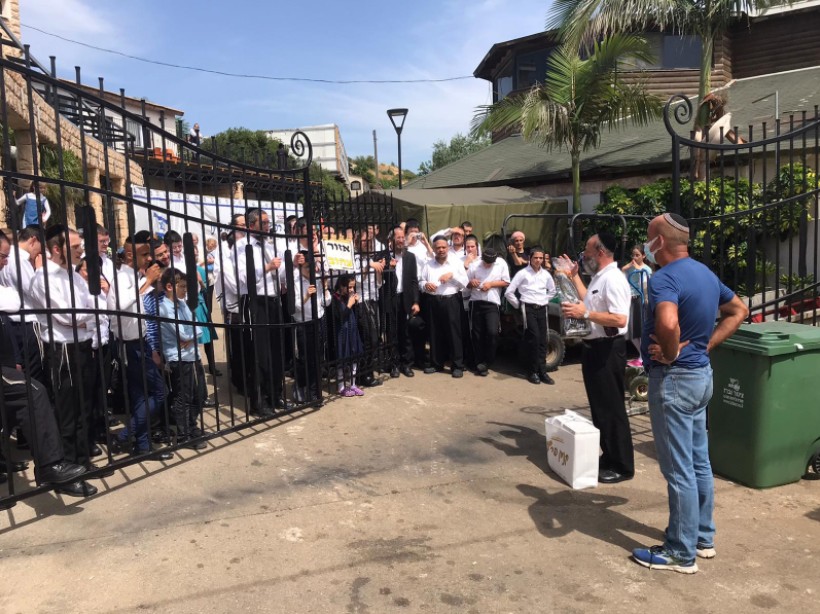
Providing the Maximum and Much More
How can you ensure optimal service when the staff cannot enter and mingle with the guests?
Jungreis: "The arrangements are different in the sense that it is difficult for us to go inside. We can’t roam in the yellow zone where the guests stay, only in the green zone. This challenge also affects our ability to provide good service, so we rely on our teams, who, with proper protective equipment, go inside and offer services."
When I tried to probe into the options to make the COVID hotel's stay more pleasant, I was surprised by Jungreis and Ashkenazi's responses. "Every guest – even one with coronavirus – is treated as if they paid top dollar for a vacation," Shmuel expresses. "We provide maximum service, much more than what the Ministry of Defense requests. We've partnered with a prestigious restaurant in Tzfat with Badatz Hechsher, and we bring the finest menus from there. We don’t skimp on portions, and always provide more than the number of guests. Meals are served buffet style, not as combat rations. Beyond the meals, we offer a variety of activities, daily popsicles, sweets, mineral water throughout the day, all to ensure our guests truly feel like they are at a hotel. As far as I’m concerned, they are my guests, and like every guest – they receive the best."
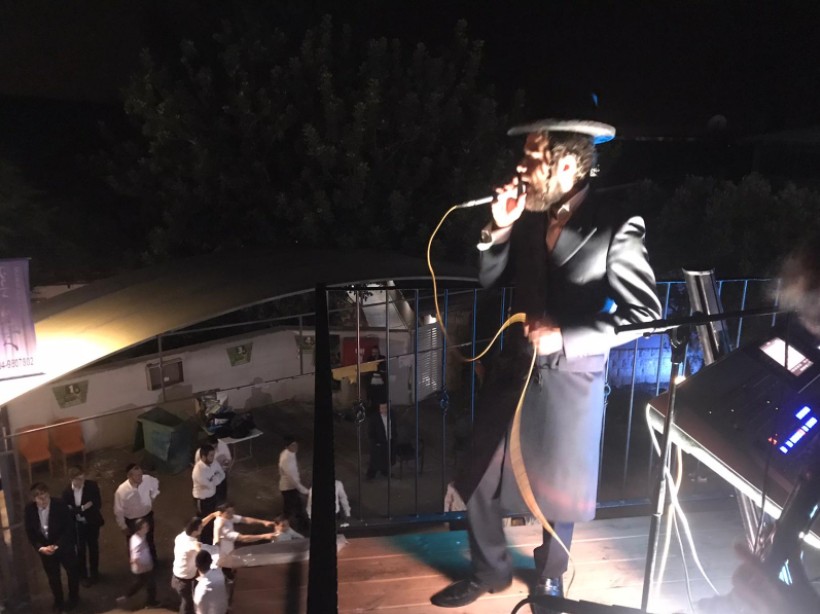
Ashkenazi: "The hotel management, along with the Home Front Command, identifies the guests’ needs. We are highly attentive to unusual requests, and we are ready to provide both basic needs at the best level and also bring performances and joyful events to keep them occupied and uplifted. We cook hotel-standard food but serve it in trays. Why? Because we can’t bring in cleaners or staff to service the buffet, distribute dishes, or add extras when needed. Under these circumstances, we decided it would be safer and more efficient to distribute a larger number of trays than the number of guests in the hotel, so that anyone who wants more can help themselves until they're satisfied. Of course, rolls, cutlery, and drinks are offered buffet style freely."
I must note that this is quite rare for COVID hotels, which reportedly do not excel at regular hotel standards and mainly just do the bare minimum.
"Right", Shmuel clarifies with joy. "Before we made the decision to convert our hotel into a recovery center for COVID patients, we had two guiding principles. First, this is an emergency. In an emergency, you step up. If we want to assist the Haredi community and keep their cities green zones, we must transfer them to hotels. The second point is the mutual responsibility within the Haredi community. The Haredi community knows how to appreciate and remember who stood by them in difficult times. I’m confident the investment will repay itself multiple times over when, post-COVID, we will serve them as our standard guests."
Ashkenazi: "As I said, there was never a question of whether to take on the mission. Ultimately, I’m not doing it for publicity or prestige. I’m doing it to make a living, to provide for others, and to contribute to the national effort and lend a hand with mutual responsibility."
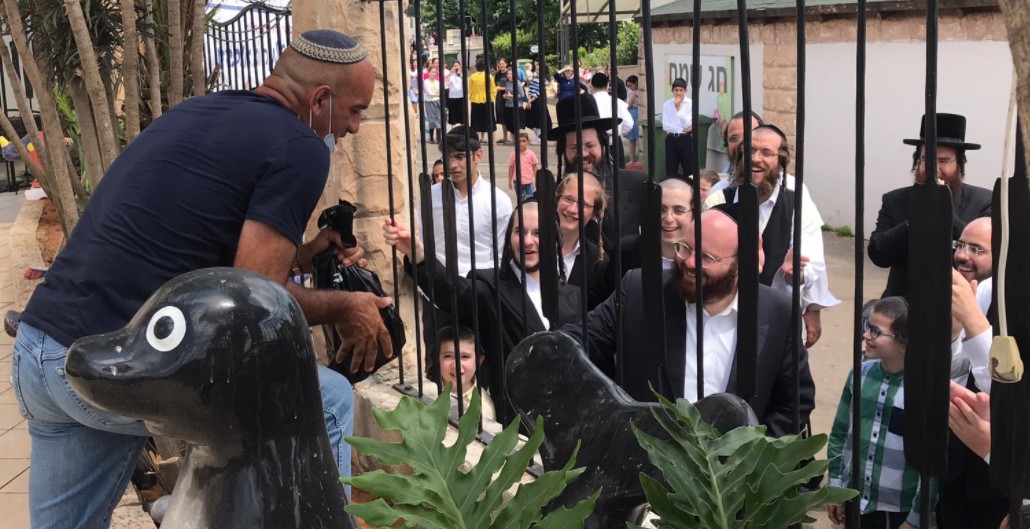
Retreat or Recovery Facility?
And how do you cope with the complexity? Staying at a COVID hotel isn't exactly a vacation.
"That’s partially true," Jungreis explains to me. "The major complexity is the fact that people come for a period of one to 30 days, and they don’t think of it as a vacation. When they come to us, they don’t know precisely when they’re going home; it’s a pressure cooker. The partitions and gates aren’t something the public is accustomed to. It can be pleasant for a few days, but when the stay prolongs, it becomes increasingly burdensome and complex – our hotel must understand that and create engagements and attractions to diversify their days."
Another special feature in 'Ruach Galilit' is family visits. One of the most necessary things observed was the need for family visits to make the guests feel good. To this end, we established a special, sterile, and protected area for visiting families. The responses have been enthusiastic, and today we serve as a model. We also have clearly defined procedures for transferring packages, allowing, on the one hand, connection with the outside world, and on the other, full protection.
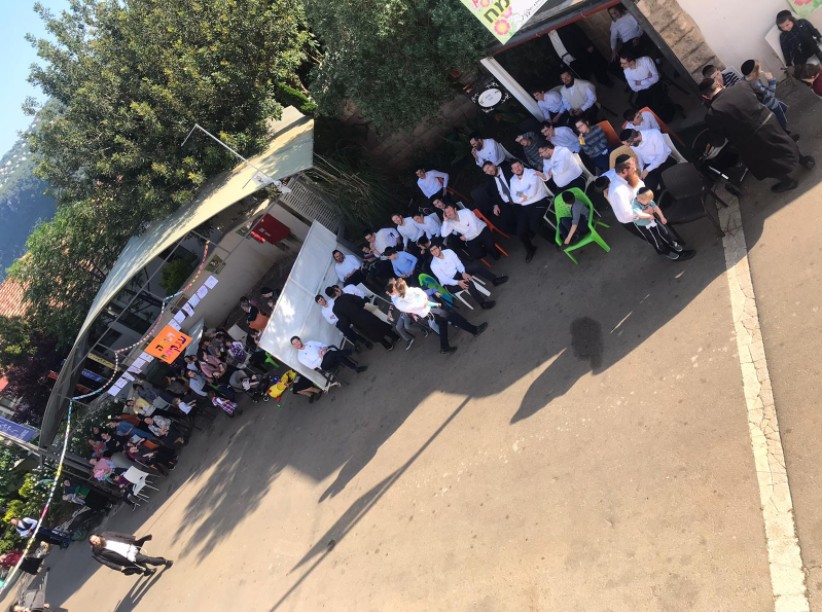
And expectations? It’s not uncommon to hear of high expectations from some of the public and disappointment with inadequate services at some COVID hotels.
Jungreis: "The Home Front Command, responsible for the logistical and medical aspects of the operation, explains to every guest upon entering that they are not staying at a five-star hotel and need to understand the implications. However, we have upgraded the service and meals for the benefit of the community, so much so that there’s no real difference from a typical operating hotel with regular guests."
Ashkenazi: "All the guests know they’re not coming to a five-star retreat. They understand the complexity, they grasp the procedures, and they cooperate exceptionally well. One aspect we emphasized is appointing cleanliness wardens from within the guests themselves. Every day, there’s a rotation of who cleans what. We maintain a very high level of hygiene so that the place does not become makeshift and improvised. I can say we receive excellent cooperation from the guests."
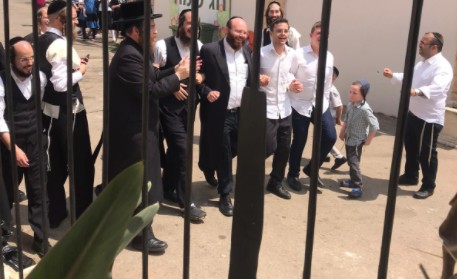
One example of collaboration with community activists?
"For instance, the laundry facilities," Ashkenazi describes. "The Beitar municipality and the 'Mechubarim' organization, along with others, brought six washing machines here. Thus, the laundry problem doesn't exist with us and never has."
There's a sense that not all hotels wish to be tailored hotels for the Haredi sector. What might be the reason?
"Hotels that regularly cater to the secular public are unaccustomed to large families," Jungreis explains his viewpoint. "They expect parents with one or two children at most. When hosting large families, operations differ. You need to provide activities for children, accept broken dishes due to a child's carelessness with understanding, and the entire hotel takes on a different form. For me, it’s different. I view things positively, so not only did we agree, we even wanted it."
Unforgettable Moments
In an emergency, is there someone to reach out to?
Jungreis: "If it’s a medical emergency, there’s a military medical team, a regularly visiting doctor, and designated ambulances parked at the hotel for any cases requiring evacuation. For personal issues and other requests, my phone is available 24/6. I constantly receive and promptly address calls." In the service domain, 'Ruach Galilit' exceeds itself, demonstrating creativity. "To address the needs of hotel guests who cannot meet us without protective gear, we appointed a community relations manager within the hotel. We select one of the COVID patients staying at the hotel, and that person becomes the point of contact for requests until they are discharged and someone else takes over. This initiative has proven effective."
Ashkenazi: "I can tell you that one of the key understandings we had from the beginning was to provide our guests with extra service despite the circumstances. We must ensure a good hosting experience within the limitations; hence, we are constantly reassessing our activities to improve."
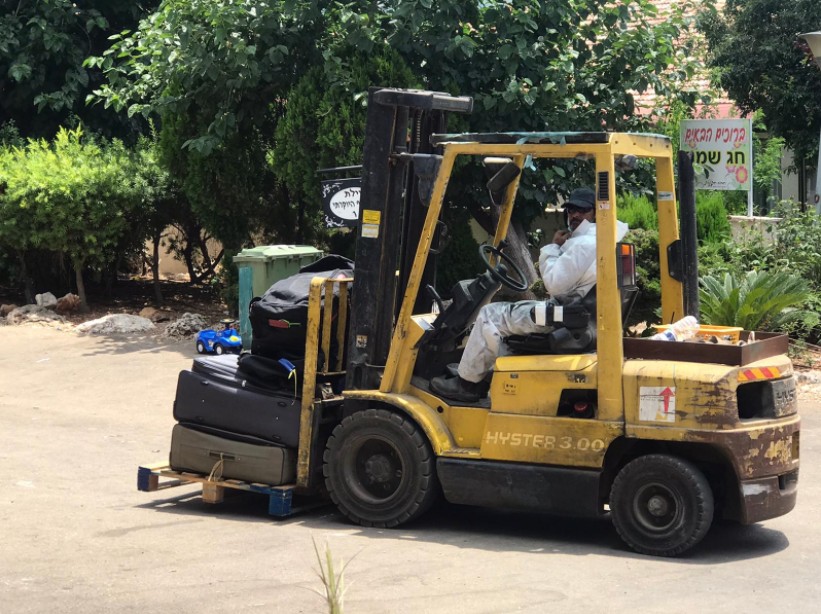
"My phone is open for any special requests or issues that arise. If it’s something I can resolve, I do everything possible to do so. If it involves the Home Front Command, I immediately escalate it to the higher levels, and they promptly address it. At any given moment, there is courteous reception, hotel representatives isolated from guests, available for any inquiries and requests."
A moving moment you experienced in the hotel?
Jungreis: "We’ve celebrated all types of events here: bar mitzvahs, bat mitzvahs, birthdays. But the highlight was preparing a Shabbat Sheva Brachot for a bride and groom who contracted COVID together with their wedding attendees. Four days after the wedding, the couple arrived, and quietly, without revealing, we organized an event for them that was worthy of a prestigious venue. We brought in an orchestra, musicians, balloons, flowers, and more. The bride’s reaction after the event was, 'Sometimes you need to go far to realize how much Israel stands united. An event like the one I experienced is the dream of my life, and I never believed it would come true.'"
Ashkenazi: "A particularly special moment I experienced was far from ordinary. The night before her wedding, it was discovered that the bride tested positive for the virus. The wedding was canceled, and she evacuated with her family to the hotel. I received heartfelt requests to try to organize a mini wedding for her. We contacted the Home Front Command, charitable organizations, professionals, and everyone who could help arrange an event, and we organized a magical celebration with a food bar, a keyboardist, and a singer, a real mini wedding. It was an emotional moment. It was a moment where I saw firsthand how you can make lemonade out of lemons."
In conclusion, are there less pleasant things you encounter with the guests?
Ashkenazi: "We had a case where a girl attempted to jump over the hotel walls and escape. The police on-site caught her immediately. I pleaded with them not to fine her, arguing that the emotional condition of an identified COVID patient isolated for a long time does not do well for one's mental health. It didn’t help much, but it was a particularly painful incident for me. I saw the despair in her eyes."

